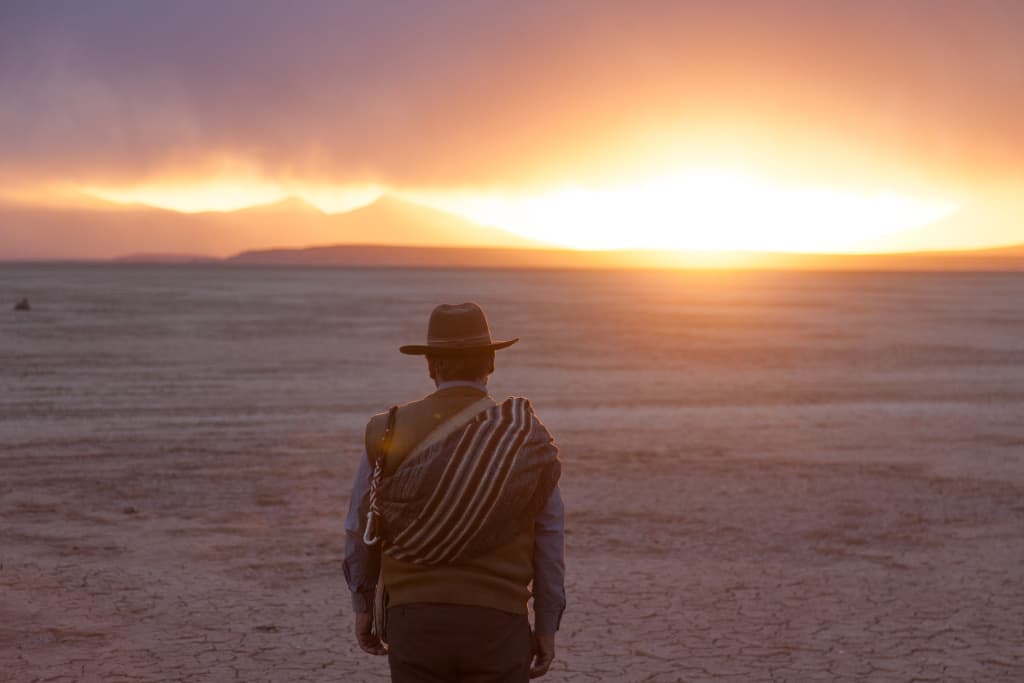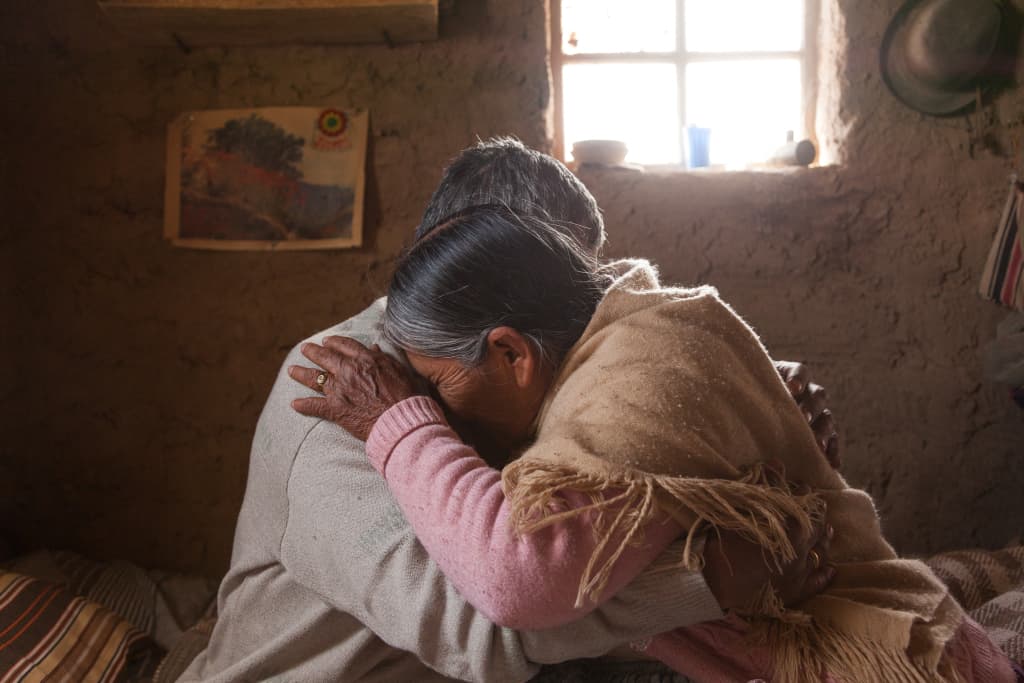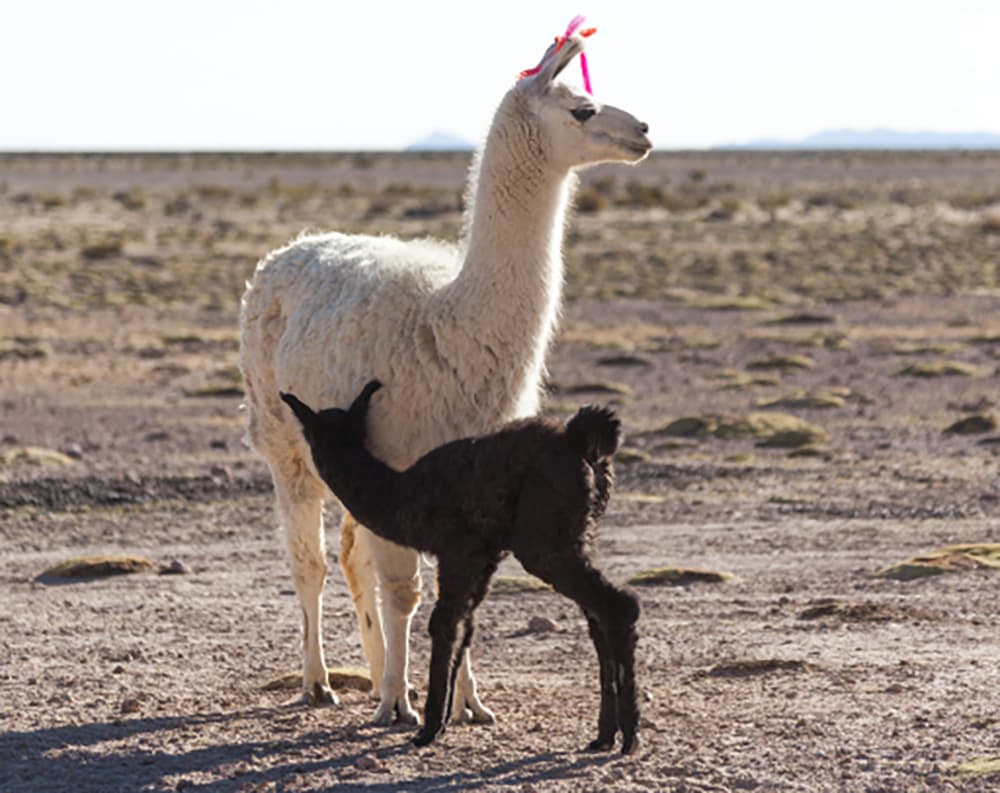Advertisement
Review
Film 'Utama' is an arduous, authentic journey toward climate devastation

The rains haven’t come for some time. Here in the Bolivian highlands, the arid ground has grown cracked and rough. Yet every morning, farmers Virginio (José Calcina) and Sisa (Luisa Quispe) still rise to do their chores. The elderly Quechua couple awaken and greet one another with warm smiles and wordless nods before getting down to work. It’s not that they’ve run out of things to say to each other but rather that they’ve long ago passed any need for saying them. Every day he takes their llamas to graze and every day she walks with the other women of the village to fetch water. Lately, the women have been walking a lot further than they used to.
The words “climate change” are never uttered in “Utama,” writer-director Alejandro Loayza Grisi’s assured debut feature, which won the World Cinema Dramatic Grand Jury Prize at this year’s Sundance Film Festival and screens at the Brattle Theatre this weekend. If there’s a term for global warming in the Quechua language, we don’t hear it aloud. We don’t need to. Our impending climate catastrophe colors every action in the film, which is about what happens when a way of life becomes unsustainable.

Virginio and Sisa are visited by their grandson Clever (Santos Choque), his headphones and hoodies an anachronistic sight in their adobe home. He pleads with them to come back with him to La Paz, where they have hospitals and crazy inventions like electricity and running water. Virginio, stubborn as they come, is having none of it. There’s bad blood between him and the boy’s dad, some unfinished business alluded to while taunting Clever in his indigenous tongue, because he knows the kid only speaks Spanish. The old man isn’t going to budge. He intends to keep working this hard land no matter how much harder it gets, although that cough he keeps trying to cover up suggests he won’t be able to toil like this for much longer.
“Utama” (the title translates to “Our Home”) is not exactly what one would call a subtle or particularly complex piece of storytelling. Nor does it need to be. A still photographer making his motion picture debut, Grisi works in blunt-force visuals, capturing the harsh beauty of the arduous Altiplano landscape with a sharp, exacting eye. He and cinematographer Barbara Alvarez (who also shot Lucrecia Martel’s “The Headless Woman”) immerse us in this place and its slowed-down rhythms with long, locked-off shots emphasizing the vastness of these forbidding spaces and the smallness of the people trying to eke out a living from within them. Even the sound design is sparse and unforgiving, with entire scenes tracked to Virginio’s increasingly labored breathing.
When people do speak in the movie — not a frequent occurrence — it’s often in baldly symbolic terms. At one point, Virginio explains to his grandson that when a condor has outlived its usefulness, it nobly allows itself to fall from the sky and dashes its brains out upon the rocks. But birds are awfully stupid animals, and the boy’s gonna make damn sure his grandfather sees a doctor no matter how ornery the old guy gets. (The kid’s not named Clever for nothing.)
Stars Calcina and Quispe are non-professional actors discovered by Grisi during a location scout. Plucked from lives quite similar to the ones being portrayed, they’ve got an effortless authenticity you certainly couldn’t get from casting showbiz types, no matter how well-researched. The tradeoff is a certain stiffness in the performances, a rigidity unfortunately echoed in the film as a whole. Obviously, nobody expects something like “Utama” to be a barrel of laughs, but sometimes the film is so solemn as to flirt with monotony. I mean, llamas are some of the silliest-looking animals on the planet, yet even despite Virginio’s flock wearing pink ribbons in their ears, they don’t add much levity to the proceedings, which can grow as dry as the high desert climate.

“Utama” is a long 87 minutes, but when it’s over you feel like you’ve been somewhere. There’s probably no way to make the film sound sexy and I fully understand that in synopsis “Sundance prize-winning Bolivian llama farmer movie about climate change” sounds like a bad parody of international art cinema. Yet there’s real power in Grisi and Alvarez’s visuals, and if you’re willing to surrender yourself to the movie’s spell it’s worth living alongside these people for a little while as they wait for the rain.
“Utama” runs at the Brattle Theatre from Friday, Nov. 18, through Sunday, Nov. 20.
